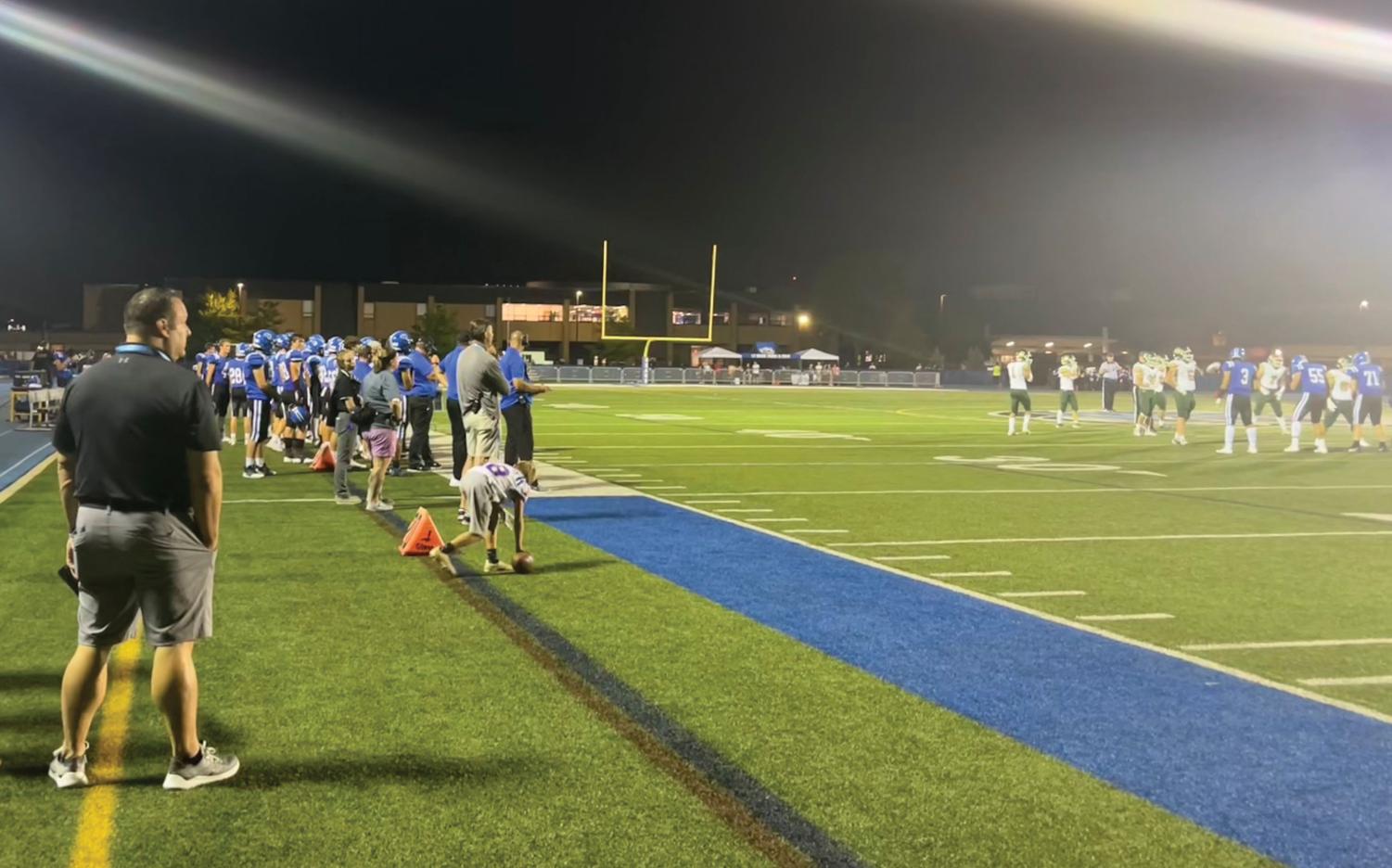A new perspective
LZHS welcomes a new athletic director
September 30, 2022
As the school year begins, LZHS welcomes Daniel Dolney as the new athletic director. Last year, Andrew Lambert resigned from being the athletic director so he could pursue his goals as the assistant principal of LZHS. However, even though Lambert left his position in the Athletic Department, new opportunities and challenges await Dolney.
As the 2021-2022 school year was ending, Dolney was hired at the May school-board meeting. Prior to coming to LZHS, according to Dolney, he worked as the athletic director at St. Charles North for 12 years. Although he has left, Dolney expresses much excitement and enthusiasm about being able to experience working at a new school.
“I think when you have a new opportunity, you get to do new things and you get to be part of a new community. You get to be around a different group of kids, coaches, and teachers, and I enjoy having conversations and being around people. So the opportunity for me to be at a new school is fun for me,” Dolney said.
When Dolney was hired, he received the chance to meet some of LZ’s coaches and teachers during a breakfast conference. During the conference, Dolney got to walk around the school to get familiar with the campus and ended up meeting some student-athletes as well. According to Dolney, being able to talk to the athletes is very important to him because he “enjoy[s] being able to hear about their sport.”
“I think when students have that opportunity to do what they’re passionate about, I enjoy being able to see them grow as a person and as an athlete. I think as a high school athletic director we have 28 sports here, so we have a lot of opportunities for kids to be involved and do what they are passionate about. And I like to see them have that passion,” Dolney said.
As an athlete grows passion for their sport, they become more knowledgeable about the sport which comes with leadership responsibilities. According to Dolney, being able to discuss leadership with athletes is just as important as getting to know why the athlete plays the sport they do. Leaders on teams help to shape the sport and team dynamic and according to Dolney, “A strong team dynamic that is shaped by the leaders on the team is the key to a successful season.”
“There’s more to the sport than just playing the sport, there’s a leadership part of it. There’s how people see you and how you represent your team, your school and your community,” Dolney said.
According to Dolney, if athletes have a solid base of leadership skills combined with the other skills they acquire through their sport, they are more likely to be successful in their sport especially if they plan to continue to play in college.
“I was fortunate to get a good basis of leadership skills at an early age so I enjoy having those types of conversations with kids because I think it’s 100% true that kids need solid leadership skills to help them be successful. I want kids to go off to college and have a great basis of leadership as well as philosophical beliefs,” Dolney said.
Colleges that are looking to recruit athletes take a considerable amount of time to look into the achievements of the athlete. Dolney is making one of his goals as athletic director, to make sure that the awards athletes have received are displayed appropriately throughout the school so they can have that chance to be seen by potential college recruiters.
“I think we need to make sure that we’re tracking our athlete’s accomplishments. I want to make sure that we’re putting them up, posting them and honoring their accomplishments. [The Athletic Department] is coming up with a new way of putting up the NSC championship awards that still need to be displayed,” Dolney said. “I want to find a way to unify the way different sports awards are displayed so they look nice and organized. For example, I want volleyball to have something but it shouldn’t look completely different from what basketball wants to put up.”
Even though Dolney has several ideas for what he wants to do to help improve the school’s athletics, these ideas are still being constantly “workshopped” and revised to figure out what would be the best solution.
“I think whenever you go somewhere new, you need to have a good understanding of the history of the place. When you know the history about the place, it makes it easier to be able to make changes that will be beneficial to the faculty and students,” Dolney said. “The whole point of making changes is to make things better for the kids and to make things better for the community in the building so that’s what I’ll look at when I want to make changes.”
